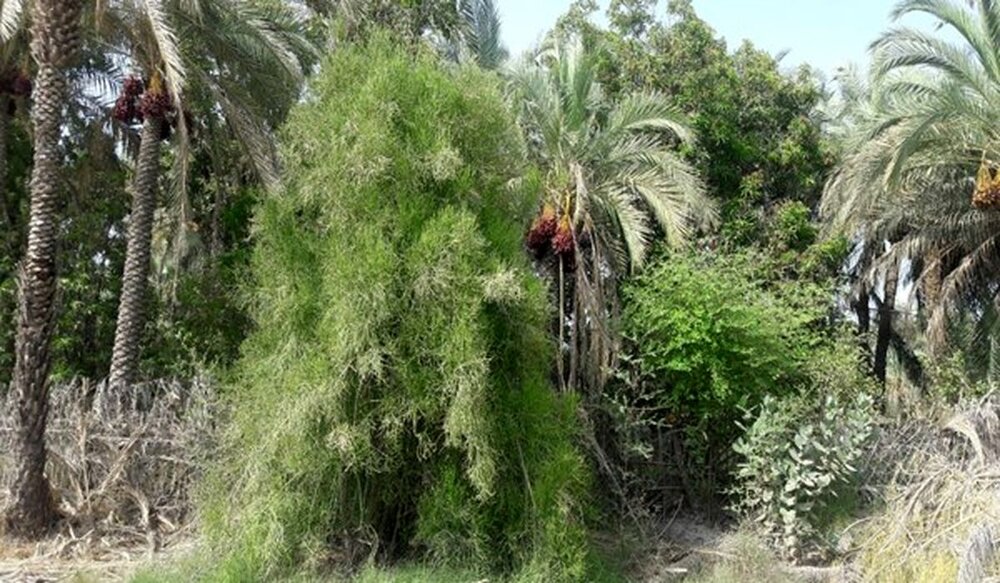Weird but true: rare tree capable of producing oil in Iran

TEHRAN – Euphorbia tirucalli, a rare tree growing well in dry regions of Sistan-Baluchestan province in southeastern Iran is capable of producing 10 to 50 barrels of oil per hectare.
Euphorbia tirucalli (commonly known as aveloz, Indian tree spurge, naked lady, pencil tree, pencil cactus, milk bush) is a hydrocarbon plant, which produces a poisonous latex that can cause blindness.
The tree is a shrub or small tree with pencil-thick, green, smooth, succulent branches that reach heights of growth of up to 7 meters. It is used as alternative medicine in many cultures. Attempts have been made to use it to treat cancer, excrescence, tumors, warts, asthma, cough, earache, neuralgia, rheumatism, and toothaches in countries.
It has no thorns and is used by farmers as a natural fertilizer and pesticide. This tree can flower in nature, but it rarely happens in apartment conditions.
It has a wide distribution in northeastern, central, and southern Africa. It may also be native in other parts of the continent as well as some surrounding islands and the Arabian Peninsula and has been introduced to many other tropical regions, such as Brazil, India, Vietnam, the Philippines, and Ghana. And is often used to feed cattle or as hedging.
Pencil tree needs more research and attention
Mansour Raeisi, head of Nikshahr’s forests, range, and watershed management organization told IRNA on Wednesday that U.S. chemist Melvin Calvin has proposed the exploitation of E. tirucalli for producing oil due to its latex can also be used as fuel.
This usage is particularly appealing because of the ability of E. tirucalli to grow on land that is not suitable for most other crops. Calvin estimated that 10 to 50 barrels of oil per acre was achievable.
He said that in some countries, this tree is used for the production of glue and rubber, adding that the only use of this evergreen species in Nikshahr city is the use of fencing of farms and orchards.
Pointing out that white sap is very sticky and has medicinal uses, and pests cannot destroy it due to the toxicity, he said that the growth of this rare tree can prevent cutting of many forest trees in Nikshahr.
This tree only needs irrigation in its early days of planting and then it can grow by rainwater or soil moisture, he said, adding, the planting is done spontaneously by farmers for fencing around the gardens.
Raeisi pointed out that we will soon start the growth of it due to the high value of the species and its therapeutic uses.
The tree is scattered in Nikshahr city, especially in the central part of Mahban and Dehestan villages, and there are about 10 hectares of it, both hand-planted and self-cultivated, and in the past was used as fertilizer and pesticides, which have unfortunately been replaced by chemicals, he explained.
“So far, no research has been done on the pencil tree, and we hope that this will be achieved with the help of investors from the private and public sectors,” he concluded.
FB/MG
